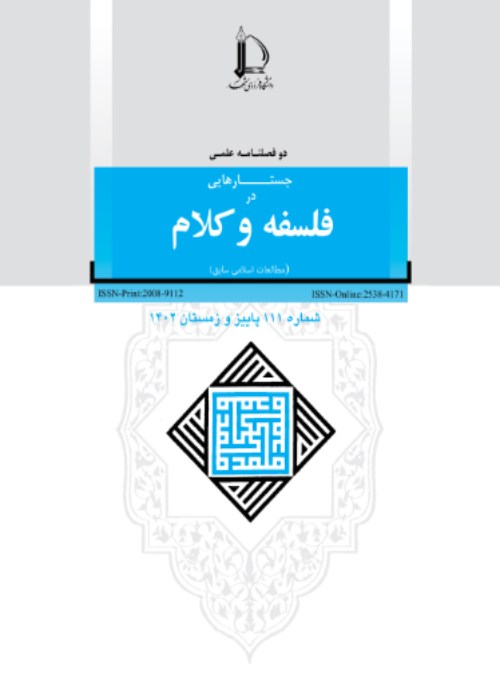Analysis of Plotinian Elements in the Intellectual Foundations of Maktab-e Tafkīk with Emphasis on Theological and Psychological Issues
One of the criticisms of the intellectual traditions opposing Islamic philosophy is that all the different schools of Islamic philosophy are influenced by elements of Greek philosophy. Referring to common principles and foundations between Islamic and Greek philosophy, the followers of maktab-e tafkīk (school of separating religious and 'foreign' or secular sciences) claim that Islamic philosophy is against and in contrast to the pure teachings of Ahl al-Bayt (P.B.U.T.). According to them, Islamic philosophy is an expansion of Greek intellectual principles that have no divine origin and its purpose is to compete with the pure ideas of Ahl al-Bayt (P.B.U.T.). The most important basis of maktab-e tafkīk in opposition to Islamic philosophy is the existence of these common foundations between Islamic and Greek philosophy. The question now is whether maktab-e tafkīk itself has something in common with Greek philosophy, and if such similarities exist, can this be regarded as evidence of non-originality and secularity of this theological approach? By scrutinizing the works of Plotinus and the writings of the followers of maktab-e tafkīk, this paper examines the commonalities of these two intellectual approaches in the two realms of theology and psychology. According to the achievements of this research, many of the principles and foundations of maktab-e tafkīk have been clearly stated in the words of Plotinus, as if the word of Plotinus had appeared in another language in the written works of maktab-e tafkīk. According to the authors, the existence of these commonalities is not a proof of the non-originality and secularity of this school; rather, finding sources of one’s thought in the words of the ancients or in other cultures shows the wide scope of that thought and indicates that the course of human thought can be of a continuous, trans-temporal and trans-spatial course.
- حق عضویت دریافتی صرف حمایت از نشریات عضو و نگهداری، تکمیل و توسعه مگیران میشود.
- پرداخت حق اشتراک و دانلود مقالات اجازه بازنشر آن در سایر رسانههای چاپی و دیجیتال را به کاربر نمیدهد.


